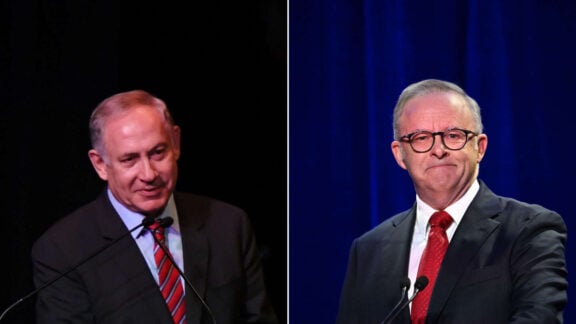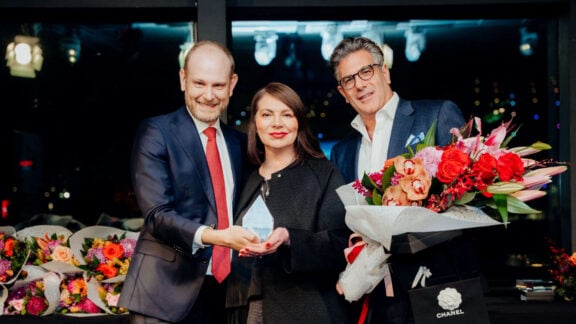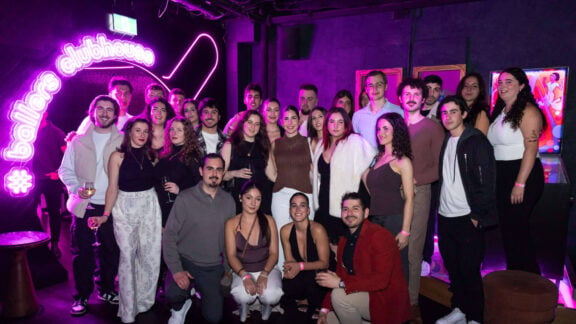It’s been dubbed ‘weird wave’, but the only ‘weird’ part of this new wave of films produced in Greece is its endurance, despite the dire financial environment surrounding it.
It was just before the Global Financial Crisis that the new school of Greek filmmakers emerged, gaining praise at the world’s major film festivals and adding value to the ‘Greek brand name’.
Making critically-acclaimed movies in the gloom of an economic crisis has actually helped raise awareness of the hardships faced by the Greek people among a cultural elite.
After Giorgos Lanthimos’ success at the Cannes Festival, in which his (UK produced) film The Lobster won the prestigious Jury Prize last May, other Greek filmmakers have been making news around the world, producing films that perform better outside the country’s borders.
Most notable among them is Athena Rachel Tsangari’s Chevalier, a story about six men stranded on a boat, which won Best Film at the London Film Festival. Described as a “biting, playful dissection of the male ego”, the film is characterised by a peculiar sense of humour. Speaking to euronews, Athena Tsangari agreed.
“It is the first comedy which I have shot,” she said. “It won’t be the last one. I am very interested in this genre and I think it is the most difficult, the most challenging. There is humour in all my films. I have developed my personal sense of humour and it is on some occasions underground humour, black or at other times less ironic.”
Chevalier features a stellar cast of actors, among them Vassilis Mourikis, arguably the best film actor in Greece today, but also pop singer Sakis Rouvas.
“I believe 90 per cent of film direction has to do with casting,” admitted its director. “That’s why it takes me a lot of time to find the actors that will fit into my screenplay. It is actually a puzzle. All the team has to find the best way to solve it. It is like cooking. You have to use small portions of different ingredients. I knew from the auditions the final, the correct recipe.”
Chevalier premiered at the Locarno Festival earlier this year and since then has been shown at some of the major festivals including Toronto, Sarajevo and New York. The film is currently showing in cinemas in Greece and is set for international distribution in 2016.
A PLAY WITHIN A PLAY WITHIN A FILM
Another internationally successful Greek film, Yorgos Zois’ Interruption, was selected in this year’s Orizzonti sidebar of the 72nd Venice Film Festival.
It is inspired by a real-life event. In October 2002, 50 armed Chechens entered the Dubrovka Theatre in Moscow and took the audience of 850 hostage.
In the film, a similar event takes place, during a post-modern theatre adaptation of a classic Greek tragedy in a theatre of Athens.
A group of young people, dressed in black and carrying guns, storm on stage, apologise for the interruption and invite people from the audience to participate.
“Interruption is a film about a hostage situation that differs from all the rest; there are no cops, no negotiations, no public opinion watching from the sidelines. It’s a hostage situation without the hostages realising it,” explains the director on the film’s website. “To my point of view, this situation resembles that of our own lives; we too are hostages of the spectacle in front of us.”
Based on the ancient Greek tragedy Oresteia, Interruption is Yorgos Zois’ first feature film. It includes all the fundamental issues of Aeschylus’ play: violence, power, the relations between the different characters, catharsis and justice.
“It is also haunted by the very strong sense of unfamiliar, or strange that also dominates Oresteia,” Zois told euronews. “It is this powerful unknown that we can’t explain through reason, we cannot put it in terms and measure it.”
The next international stops for Interruption are festivals in Istanbul, Vilnius and Palm Springs. It is set for release in Greek cinemas next January.









